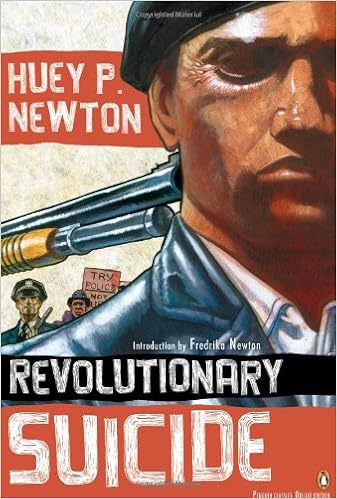
Black Panther Party for Self Defense co-founder Huey Newton has written an excellent autobiography, and, in the process, given us an even finer grained and more complete picture of the Black Panthers.
The first quarter of the book is devoted to Newton’s childhood and youth up to his college years. Newton lived what might be considered a typical life of the black working class. Money was always a struggle for the Newton family, but it was an intact family and one where abuse was absent, unlike the fractured and abusive childhood and youth years of many of his comrades.
The second quarter delves into the formation and emergence of the Black Panther Party for Self Defense. Because Newton was co-founder of the Party with Bobby Seale, Newton plays a large role in the early days of the Black Panthers. Seale himself was imprisoned for much of this period, so Newton and his ideas dominated.
Newton and his colleagues developed a ten-point program listing its objectives and guiding beliefs. One was the exercise of the Second Amendment and called for an end of police brutality. This led to the Black Panthers organizing patrols that shadowed the police. Understandably, the police did not appreciate this attention, and one night a firefight broke out between the Black Panthers and the police. One policeman was killed and another one wounded. Newton was charged as perpetrator of both shootings.
The third quarter of the book describes Newton’s 33-month ordeal of being tried *three* times for these offenses (the first two trials ending with a deadlocked jury), and his survival of incarceration. This section of the book is the most moving as Newton writes about his trials and incarceration with pathos and intensity. The final chapters of the book deal with Newton’s release from prison and his exuberant return to his community.
The book is well written in a simple, accessible and engaging style. My only regret is that Newton concludes his autobiography with the defection of Eldridge Cleaver from the Black Panther Party. With so much more to tell of Newton’s life and the Black Panthers following this point, I wish Newton had published an updated version of this book, or written a sequel. The book ends on a sour note rather than on the triumph Newton’s acquittal represented.
Highly recommended for those interested in the history of the Black Panthers, or, more generally, those interested in Afro-American history, or, even more generally, students of American history because the Black Panthers loom so large in American history. This book obviously was a key source for Bloom’s and Martin’s excellent history of the Black Panther Party, Black Against Empire, published in 2013.
Of the Black Panther autobiographies I’ve read, this book is the best one, notwithstanding its premature ending. More than any other book, this one discusses Newton’s intellectual background for Black Panther Party activities, an important factor given Newton’s dominance over the Black Panther ideology.
No comments:
Post a Comment